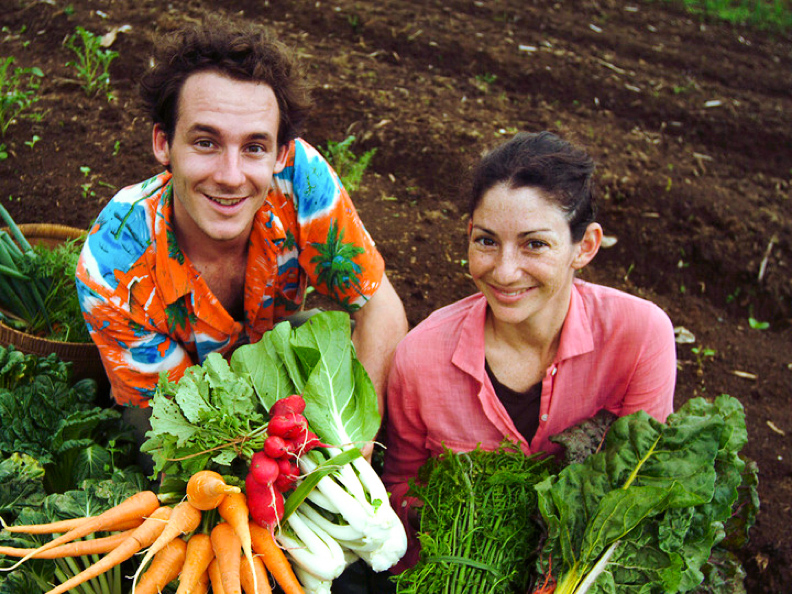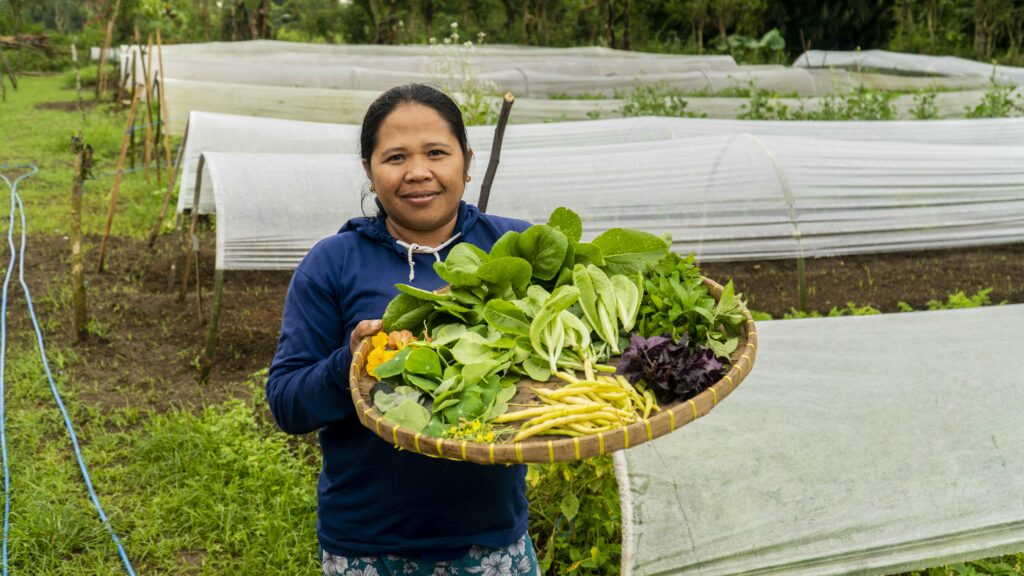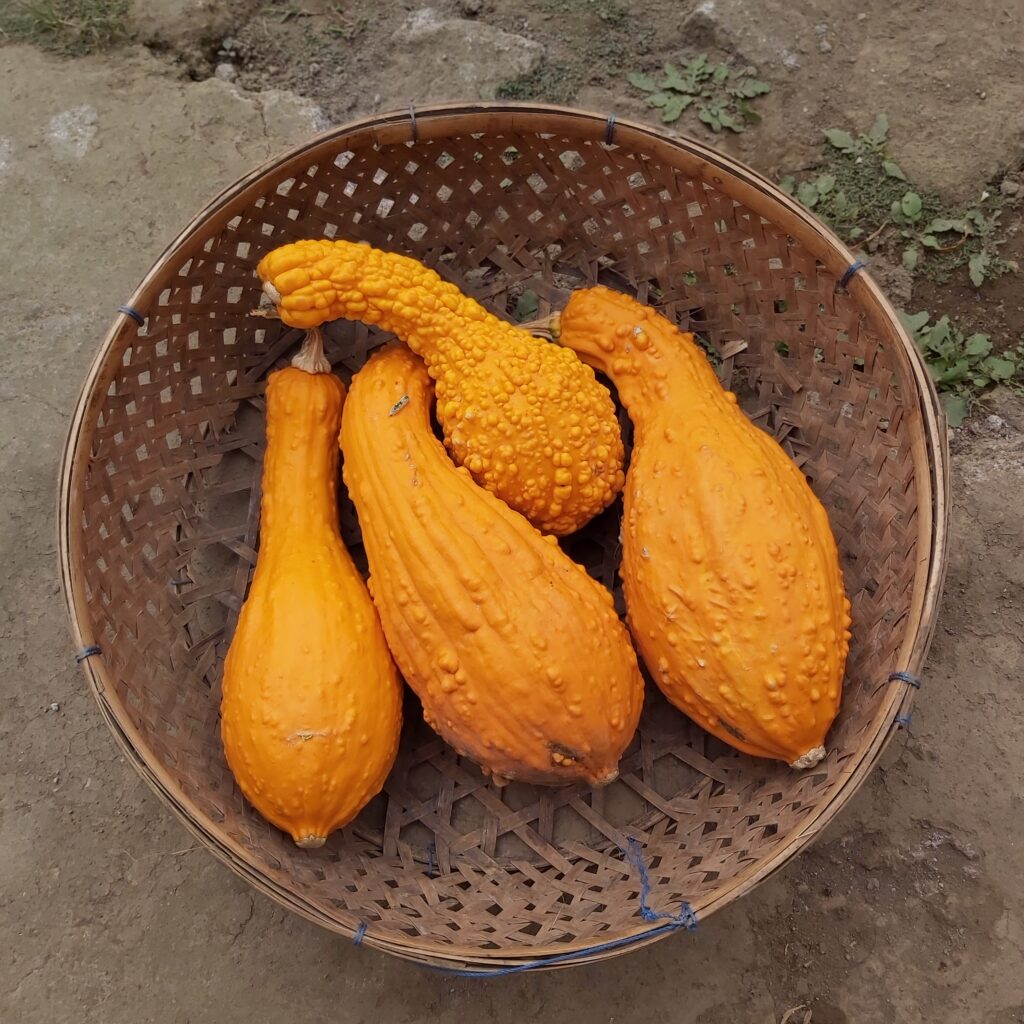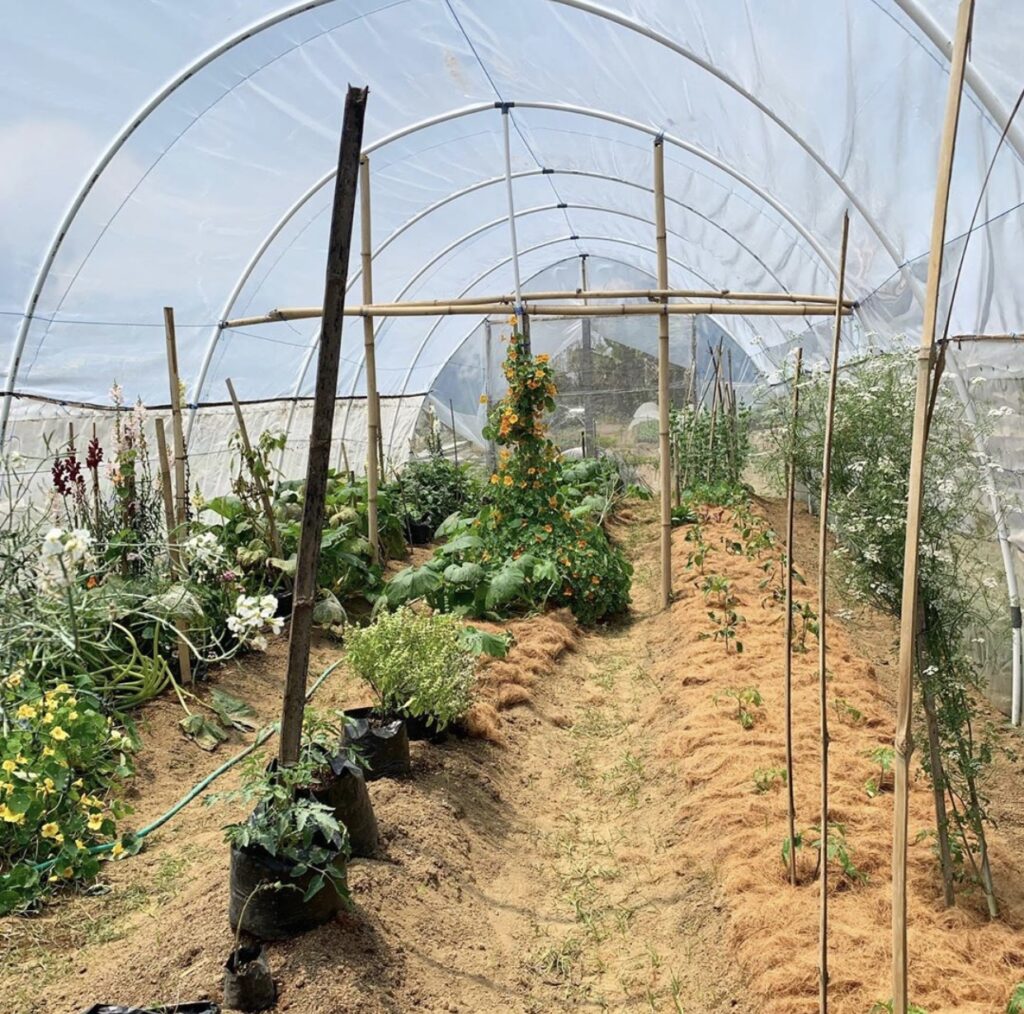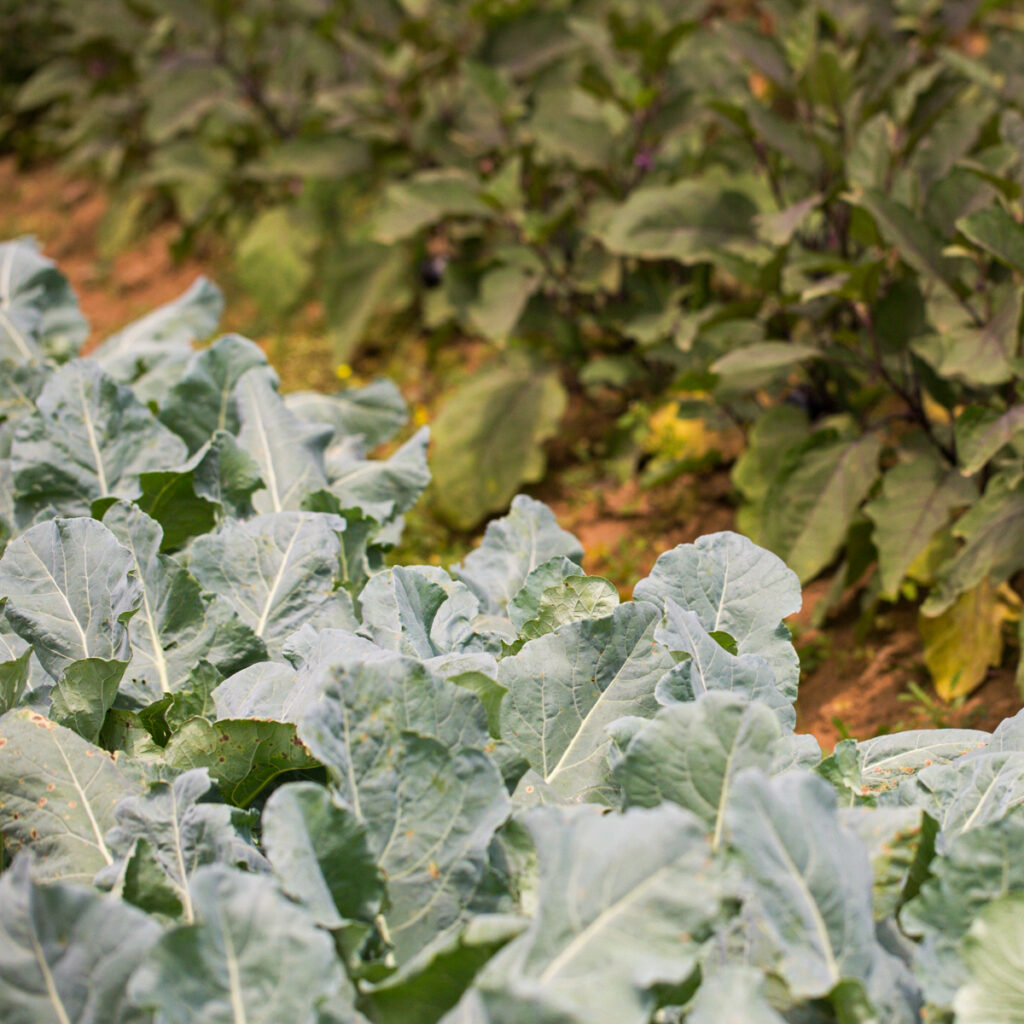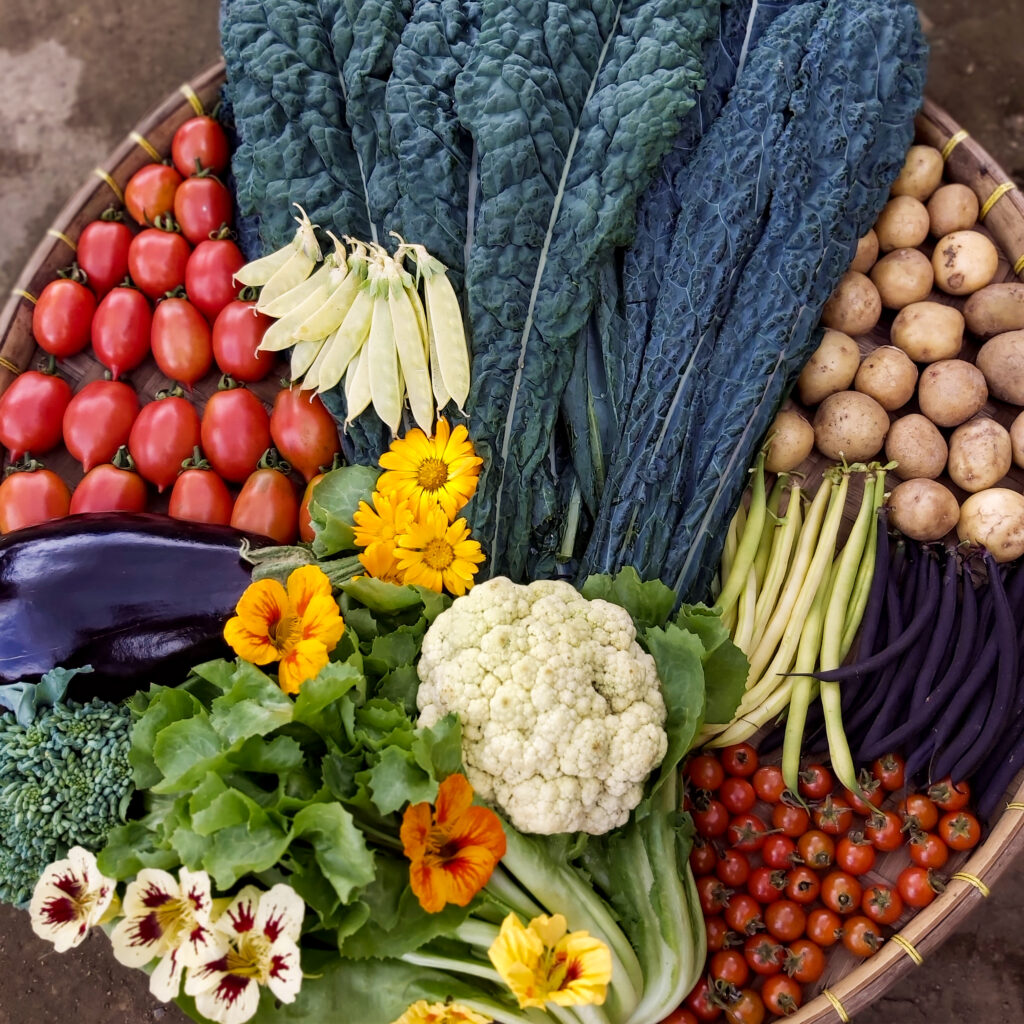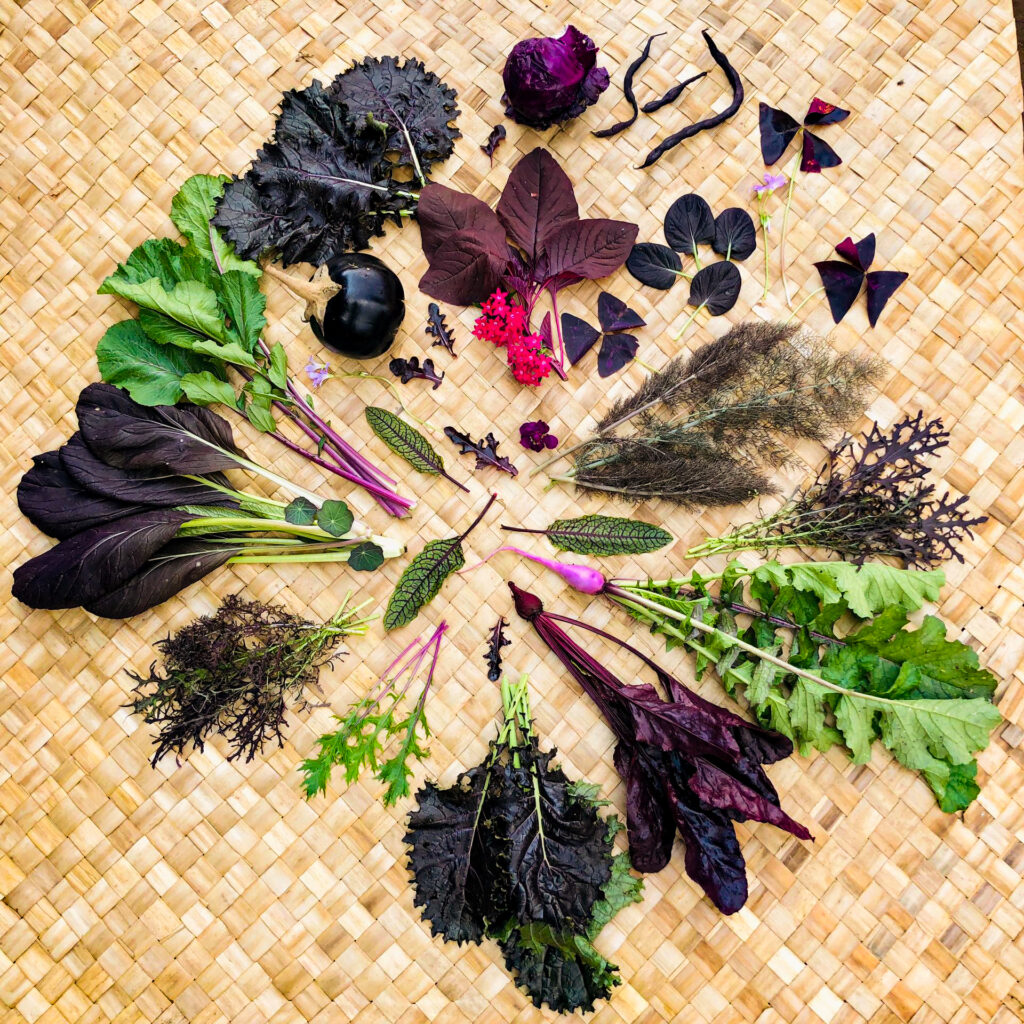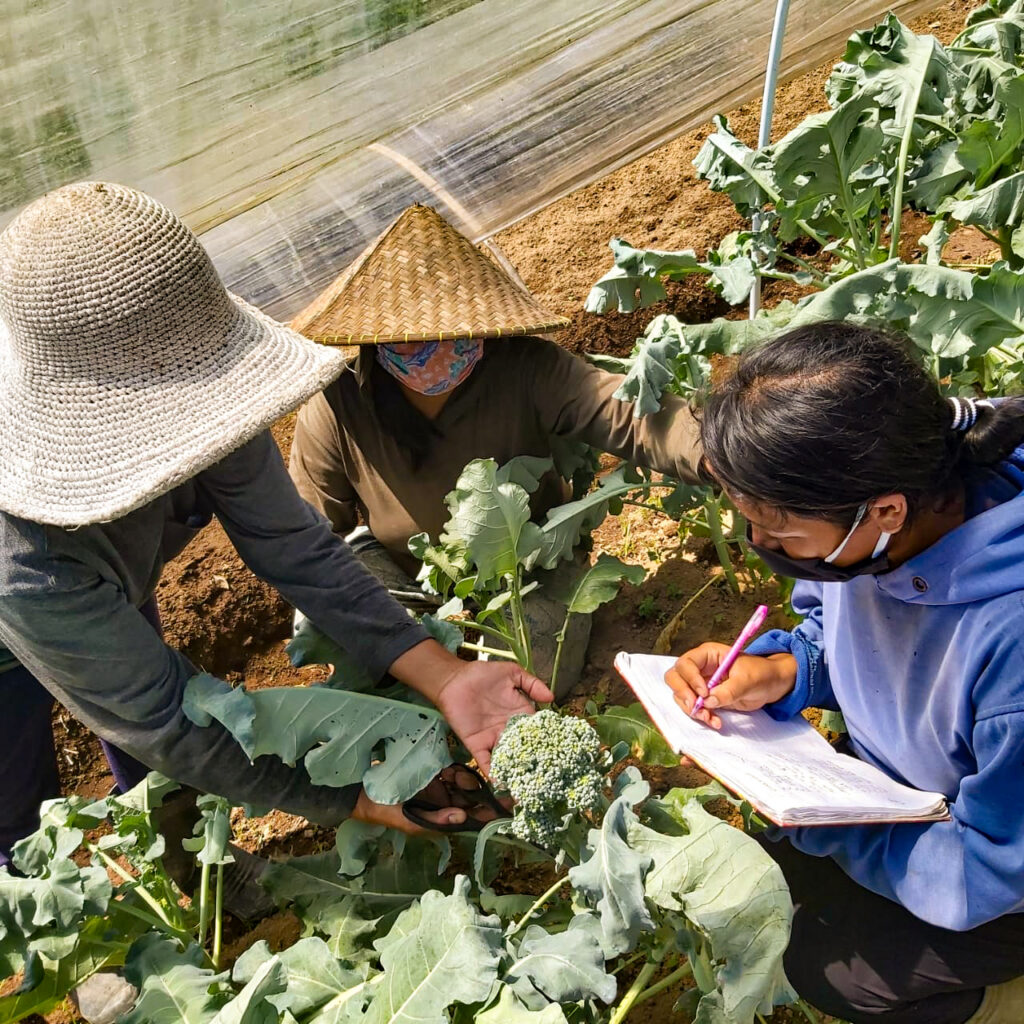Ah, Bali! Land of araks and coconut trees, fresh produce and surfing paradise. I was in Bali last month with every intention of reporting briskly and soberly on how farms and restaurants grow together there. But even the most soberly reporter would be entrapped by this island’s enchantments. Since touching down I had been drunk on locally grown superfood, sea-breeze infused batches of shucked oysters lay on fresh crushed ice, performative cocktails, you name it.
Within minutes a Go-Jek rider turned up, and I hopped on the back, enjoying the ride to a well-established restaurant in Canggu to meet Ramadani Yudha Prasetya, the co-founder of a Bali-based direct organic produce delivery service, “Island Organics Bali”. When I arrived, the scene was a veritable hive of activity: young foreign tourists and domestic travelers, indulging Bali’s diner staples, seasonal Mediterranean seafood makeover.
Ramadani Yudha Prasetya was physically striking, making a casual black t-shirt and denim pants, work boots, and dirt smudges look chic. The effect is partly due to his height—he is six-feet —and his deep outdoor tan, sparkling eyes with edgy eyeliner scene, and constant smile.
“We detonated something really interesting”, Ramadani Yudha Prasetya told me over our delightful lunch at Riviera Sea Bistro of grilled broccolini with fresh king prawn, and slice of colorful heirloom tomato with tuna carpaccio.
This Indonesian-based horticulturist and his business’ founders, Ben and Blair Ripple, grow their own Bio-intensive farming produce using many help gathered from beneficial microorganisms. “We were born out of frustration with the lack of access to diverse organic products,” says Rama who later joined Island Organics Bali in 2017.
Although it may sound like a fairy-tale story, it’s a scene firmly rooted in reality – and driven by one couple’s desire to spread the word about the importance of organic farming.
In 2002, Ben and Blair moved to Bali, and started out as farmers. Their extensive background in agriculture, with the lack of a fresh food market in their otherwise idyllic Sidemen, Karangasem, spurred them to take action. The lack of a farmers market seemed particularly ironic considering fertile land was scarcely an hour away.
Pointing to the movement in recent years to connect with our food sources as we become increasingly aware of our impact on the planet, Island Organics Bali goes wide in their reach, catering to reputed organic chains, fine dining restaurants, and gated communities in Bali.
The farm itself offers around 180 different varieties of domestic and tropical fruits, novelty vegetables and exotic greens, herbs and edible flowers over approximately 12,4 acres of tillable land around Bali, and provides same-day-as-harvest doorstep delivery.
1. What kind of organic produce do you offer to the market?
We offer fresh produce such as Yams, Broccolini, Savoy Cabbage, Indigo Rose Cherry to Burdock, and sometimes even Brussel Sprouts.
2. We are finding in supermarkets that we can get pretty much any crop all year round – why is this?
A blessing in disguise, although our tropical climate has given a limitation on certain crops, we also have a wider window of yields to many crops. For example, Asparagus crops only yield a few weeks in a year during Springtime, whilst in Indonesia the crown shoots up almost every day! Although this also means reduced spear size and sometimes quality.
3. Can we eat regionally and seasonally? Should we be sticking to eating foods that are in-season only?
Well, visiting farmers’ markets or produce stands in your area will give you a start on getting the hang of fresh and local eating. With a little luck, you might be able to eat regionally and seasonally half of the year, and if you are in the right place, you might be able to do it all year round.
Our body constitution follows the weather and climate, therefore it’s wise allowing mother nature and local agriculture to dictate what we select to eat. The tastiest fruits and vegetables—and probably the most nutritious–are almost always those that come to you at the peak of their natural harvest time, and produced within a 100 km radius of your home, not those that are ripening in the packing crate or on the market shelf
Right: Yellow Crookneck Summer Squash | Photo by: Island Organics Bali
4. If a product says it is ‘organic’ – how do we know for sure that it is?
Certification. They aren’t physically any different from conventional products. If you have access to your grower or supplier, perhaps you can visit and value the products yourself, as we do here in Island Organics Bali.
5. What percentage of Indonesia’s produce is organic?
Organic by international standards is most probably around 5%, and around 10% by Indonesian standard. At the end of the day, organic is just a terminology and label. It’s better to find out where the produce comes from. Are they locally sourced?
6. I read these stats that reported Indonesia lost 5.1 million farmers between 2003 and 2013, with their numbers falling to 26 million, according to Statistics Indonesia (BPS). The trend is expected to continue in the next few years. At this rate, Indonesia is predicted to lose all its farmers by 2063. However, despite the decreasing number of farmers, the total area of agricultural land and productivity has remained quite stable since the 1990s, and it is even growing for some commodities.
What factors do you think contribute to the decreasing number of farmers in Indonesia?
There are many underlying factors contributing to that stats. But, most of a farmer’s day to day tasks are still hands-on physical work, and very often considered not sexy. Farmers typically start work early, and during planting and harvesting season work until dusk.
Given unpredictable weather and rapidly changing commodity prices, modern farming is also a complex economic juggling act and modern farmers have to use computers and software for budgeting and to track harvests and inventory.
7. I heard, ‘flavor’ is a re-emerging trend in Bali, like farmers are ‘engineering’ our food? I understand that finding truly tasty fruit and vegetable varieties can be difficult, largely due to the requirements of restaurants and probably bars. Your thoughts about this?
Yes of course, we hardly could provide everything in one variety. Good flavor usually is challenging to cultivate, and the easier crops don’t have much interesting palate. Although not every mushroom is edible.
We have breeding department under business development whom always doing research of what market wants or even create our own market itself
8. Does Island Organics Bali also specialize in seasonal produce selected for flavor? If you do, can we say some of this rebirth comes from restaurants because chefs have quite a lot of influence, and that travel has both spurred on this rebirth of flavor, this search for flavor?
Yes, we do! Mainly from chefs in Bali from various backgrounds but also we acknowledge our own produce by not only shelf life but through the organoleptic features from fragrance, texture to complexity of a flavor. We can’t cater every chef needs because of the microclimate limitation but there is always a substitute to offer
Many varieties gave us different outcomes of yields compared to their origin agro-climate. Some crops tend to be more pungent, some others less sweet or changes in size which are very interesting since we aim to grow uncommon goods in the area.
Right: Breeding team collecting data from harvest department for review in volume and density | Photo by: Island Organics Bali
9. What kind of sophisticated techniques do you use to produce fruit and vegetables that have all the flavor of traditional varieties – while still keeping the clients happy?
Intensive breeding! Germplasm conservation to keep the old variety and improve it with some genetic works through conventional breeding. Nothing sophisticated about it since the original flavor needs to be achieved by traditional methods.
10. Could you offer our readers some tips on how to grow their own organic fresh produce no matter if they own a garden or not?
Recognize your agroclimate and do selection based on what is possible to grow, not what you want but what you need. Get details on crop requirements and companion planting to do multiple crops. Start to compost in your daily life. You can easily do this at home with your daily kitchen waste. Happy farming!
We ended the lunch tasting Green mustard, Black Krim Tomato, Scorzonera, Bronze Fennel, Broccolini, and Dekopon Orange from Island Organics, who delivers them three-times weekly. They are faultless. I wonder whether I could find them in Jakarta.
Island Organics Bali monthly programmes will be available starting April 2022 through delivery and event prepaid booking, exclusively on SELESA.
The Deets
| Location | Island Organics Bali |
| Address | Jl. Raya Baturiti, Desa Baturiti, Baturiti, Kec. Baturiti, Kabupaten Tabanan, Bali 82161 |
| Opening Hours | 08.00 -15.00 |
| Phone | +62 811-3863-094 |
| @islandorganicsbali | |
| Type | Community, Organic Farm, Produce Store, Home Delivery |
[tribe_tickets post_id=”3792″]


